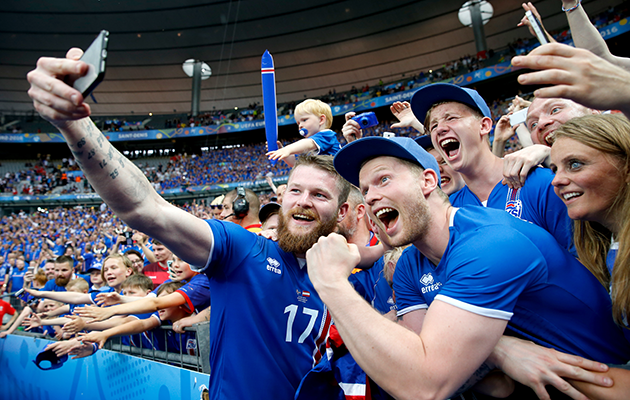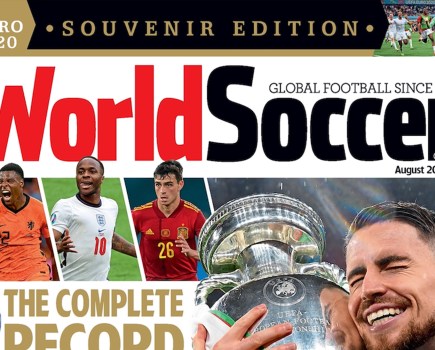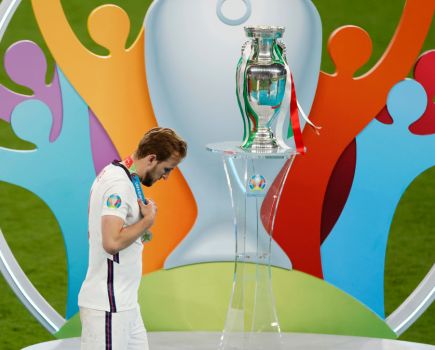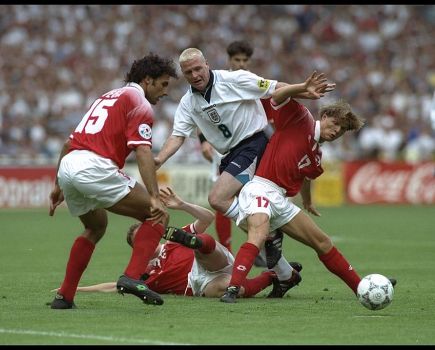The front page of French sports daily L’Equipe had it about right after the end of the first round at Euro 2016: La fete commence! Let the party begin! This is what all lovers of football should hope for the knockout stage.
Once the tournament has been washed over by noisy waves of happy – even delerious – nationalism it has to be said that the latest European Championship has not exactly been flooded out by outstanding football.
Portugal’s 3-3 draw with Hungary provided the most entertaining drama in terms of two teams standing toe to toe and slugging out the manner of their progression; hosts France have fizzled and spluttered with promise; Italy demonstrated some pragmatic class in their opening two games; and holders Spain suggested they might eventually put their act together.
But the expansion to 24 teams, while it ups the revenue and widens direct involvement, has brought the quality quotient down. Also, the muddling over third-place teams encouraged negative attitudes and brought a fog of fabricated uncertainty over the last round.
This was perfectly illustrated by Jan Kozak, the coach of a Slovak team who will play world champions Germany in the second round. They achieved progress in the tournament despite Kozak admitting, after the 0-0 draw with England: “We don’t have the players to play constructive football so it’s not our style of play to attack. I know it’s not nice to watch but if we get through to the last 16 we’ll be really happy.”
Third-place negativity is not the only piece of regulatory mischief.
Whoever is elected as new UEFA president in September in succession to disgraced Michel Platini – whether it’s Slovenia’s Aleksander Ceferin or Holland’s Michael Van Praag or a compromise A N Other – should make it a priority to restore overall goal difference as the first deciding factor between teams level on points. This must be the future in both European Championship and Champions League.
Mutual results can be a perfectly arguable manner of separating clubs over the season-long length of a league competition. But in the mini-league format it is self-defeating.
Here in France, for instance, Ukraine were eliminated after two games because of mutual results. If goal difference had been the standard then they would still have had something (albeit unlikely) to play for in their final game against Poland rather than pride alone.
The pitches have not helped. At least three are having to be relaid in the intra-tournament breathing space. Recriminations and blame have been cast in all directions. French federation president Noel Le Graet blamed the host clubs and the clubs have blamed UEFA. France manager Didier Deschamps, especially unhappy with the state of affairs at the Stade Velodrome in Marseille, blamed its battering a month earlier for an AC/DC concert.
On the positive side, the widespread predictions of transport chaos because of anti-government protests have not been borne out. Occasional cancellations of trains and flights have been noted but no more than one would expect through the occasional hazards of normal service.

Russian fans charge their English counterparts at the end of the Euro 2016 encounter.
The ‘tournament effect’ proved a slow-burner. It took all of the first week before the hordes of travelling fans started to make their presence felt and bring some noise and colour to the streets. Then, of course, there was the troublemaking minority: the Russians and the English (and the locals) in Marselle, some scuffling Poles and Ukrainians and Hungarians plus the angry Croats bringing their own ‘football civil war’ to the stands of the Stade Geoffroy-Guichard in Saint-Etienne.
Overall then, UEFA and the French organisers can feel reasonably content with general organisational issues, given that perfection is beyond reach. But the European federation and organising ceo Martin Kallen, in their eventual debrief, must certainly address safety, security and segregation as a matter of priority. The failure to insist on tighter controls within the stadia was irresponsible.
To return to the football itself, one hopes that the knockout stage will raise the standard so that European football can ultimately look back on some memorable matches. There have been none as yet.
The example of recent World Cups is not encouraging: The modern tendency has been for the better football to be played when fear is less of a factor in the group matches; maybe these European Championship finals can reverse the trend.
The mention of the two major tournaments in one sentence is salutary in itself. The European Championship is sometimes described as “the World Cup without just Brazil and Argentina.” That misses the point. The World Cup, like the Olympics, is an overriding, all-embracing world ‘event’. The European Championship remains only a football tournament.
All the more important, then, that the football itself should now shine forth.







